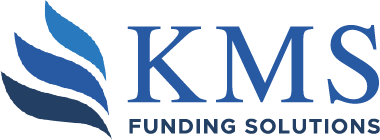What Small Business Owners Should Know about Quarterly Taxes
If you’re thinking of starting your own business, it’s important to understand that it will require a lot of work. There are lots of things to keep track of and lots of things that can go wrong. However, there are some things you can do to make the process more manageable. One of these things is to learn more about tax obligations and compliance as a small business owner.
The tax obligations of a small business can be complicated and, if you’ve never been self-employed, you may not have any experience with quarterly taxes. In this article, we’ll explain what small business owners need to know about quarterly taxes.
7 Things to Know about Quarterly Taxes
Below are 7 things that every business owner needs to understand about quarterly taxes to improve your chances of success.
What are quarterly taxes?
First of all, it’s important to know what quarterly taxes are. These are estimated tax payments made each quarter in advance of your annual tax return. Every quarter, you pay a portion of your income tax for the year. These payments are estimated because they’re made before you file your taxes. This provides individuals and businesses with a structure for making these installments toward their income tax due.
Who should pay quarterly taxes?
As a general rule, everyone who files a tax return and pays income tax should be paying quarterly taxes. If you paid taxes last year, you may need to pay estimated taxes if you or your business fits into the following categories:
- Self-employed
- S-Corp Shareholders
- Sole proprietors
- Corporations
- Partners
Who is not required to pay quarterly taxes?
If you expect to owe less than $1,000 on your tax return, you may not need to make estimated quarterly tax payments. Corporations that expect to owe less than $500 may not be required to pay quarterly taxes. If you are receiving a salary from an employer and receive a W-2 form, your employer withholds a portion of your income for taxes and pays on your behalf. However, if you are also self-employed, you still need to pay quarterly taxes on that income or have your employer withhold a higher percentage of your wages to cover the taxes.
How to Calculate Quarterly Taxes
In order to estimate your quarterly taxes, you’ll want to estimate your total income. Then, apply any deductions to find your AGI, or adjusted gross income. Finally, multiply your AGI by the relevant tax rate. This will tell you what your estimated income tax is for the year.
You’ll need to do the same thing to estimate what you owe for Social Security and Medicare.
Then, add these three totals together to get the total amount owed.
Finally, take this total and divide it by 4 to determine your quarterly tax amount.
What are the estimated quarterly tax deadlines for 2023?
The estimated quarterly tax deadlines for 2023 are as follows:
- First quarter: April 18, 2023
- Second quarter: June 15, 2023
- Third quarter: September 15, 2023
- Fourth quarter: January 15, 2024
The IRS may allow an extension on quarterly taxes- but only on the paperwork. The actual due date for your payment will not be extended. Since these deadlines typically do not require paperwork, there are no standard extensions.
What if you miss a quarterly payment?
Many people assume they can make multiple payments at once or wait until the end of the year and pay it in full. However, it is important to respect the quarterly deadlines. Any payments made after the deadline may be subject to a penalty. Therefore, if you do miss a payment, make it up as soon as you can.
Can you skip a payment?
The IRS requires that tax payments be made quarterly. The only time it’s acceptable to skip a payment is if you’ve already paid enough to cover your estimated taxes with previous payments. If you owe less than $1,000 or you’ve paid almost all of what you owed the previous year, you may be able to skip a payment.
How to Make Quarterly Tax Payments Easier
When it comes to starting and running a small business, there are lots of things to deal with. Quarterly taxes do not have to be a source of stress. If you take the time to calculate your expected taxes and stay on schedule, you won’t have a problem. If you need help learning how to manage your quarterly tax payments, contact KMS Funding. We’ll be happy to help!

